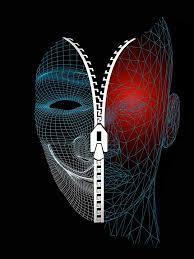
RP 400 Essentials of Distance Education
This course is often the student’s first opportunity to try a distance learning format. It is designed to aid the student through his or her distance education journey. It will help the student know what is expected for distance learning and aid the student in finding the answers needed to accomplish this goal. Finally, this course will prepare the student on how to begin college writing.
JP 501 Psychospiritual Therapy
This course requires the student to present a unified approach to therapy based on psychospiritual theory. This course presents diverse approaches including Thomas Moore’s Care of the Soul, Minirth and Dyrd’s Christian Psychiatry and Jacqueline Small’s Natural Therapy are examined. Several psychotherapy textbooks are reviewed with an emphasis on Jungian, post-Jungian, archetypal, and revisionary methods.
JP 505 Jungian Psychology
Carl Jung created a comprehensive approach to psychology that is based upon the service of soul and spirit, a respect for religious belief, science, and a methodology that includes: face-to-face analysis, dream work, and active imagination. This class reviews Jung’s major writings and studies the convergences and differences in the approaches of Jung, Sigmund Freud, and Alfred Adler.
JP 508 Post-Jungian Psychology I
Carl Jung personally trained associates to continue the development of the theories and approaches that he created. Marie Louise Von Franz, Aniela Jaffe, Joland Jacobi, E. A. Bennet and others are contributors to the continuation of Jungian approaches. These theorists, along with Henry Corbin and Edward Edinger, were also formative influences in the creation of archetypal psychology, which was written by James Hillman and his associates.
JP 509 Archetypal Psychology
The psychotherapeutic approaches of James Hillman and Marie-Louise Von Franz are highlighted in this course which challenges the student to respond to the vivid and stimulating imagery and compelling prose of the two creative forces behind archetypal psychology.
JP 520 Soul Care
The field of Soul Care has been created and developed by James Hillermand and Thomas Moore based on their revisioning of both Jungian Psychology and contemporary mental health therapy. Gary Zukav’s Seat of the Soul and other relevant texts provide for comprehensive consideration of Noesis as it was first defined by Plato. This course draws heavily on Hillerman’s Myth of Analysis and Revisioning Psychology along with Thomas Moore’s Care of the Soul.
JP 530 Psychospirituality Counseling and Education
This course will review basic psychospiritual counseling techniques. The student will apply these techniques with individuals, couples, families, and groups. An assessment tool will be developed as it relates to psychospiritual counseling. The focus will be on case studies, cultural differences, fieldwork, and self-analysis.
PT 515 Clinical Training – 1,000 Hour Externship
The student will be required to document 1,000 hours of applied clinical observations and experiences to demonstrate knowledge in the field of professional counseling at the Master’s Degree level.
TH 510 MA Thesis – 15,000-word minimum
Upon completion of the required credit hours of coursework, the student will submit a 15,000-word thesis, demonstrating his or her understanding of the field of their choice. Students will have to demonstrate their grasp of the basic concepts in their fields and are encouraged to do a comparative study of techniques or philosophies. Students will be able to apply towards the thesis some of their homework, if relevant to the proposal.

